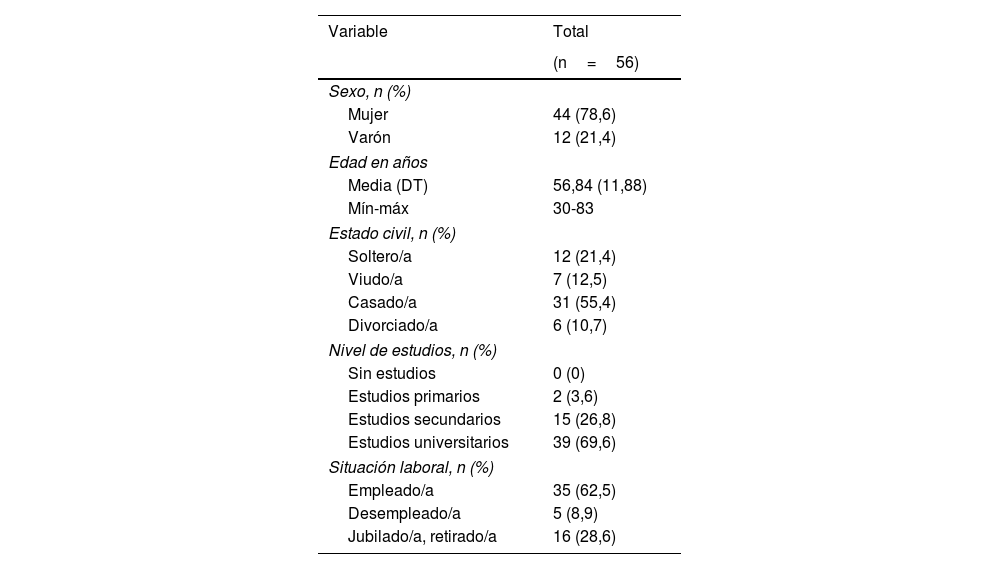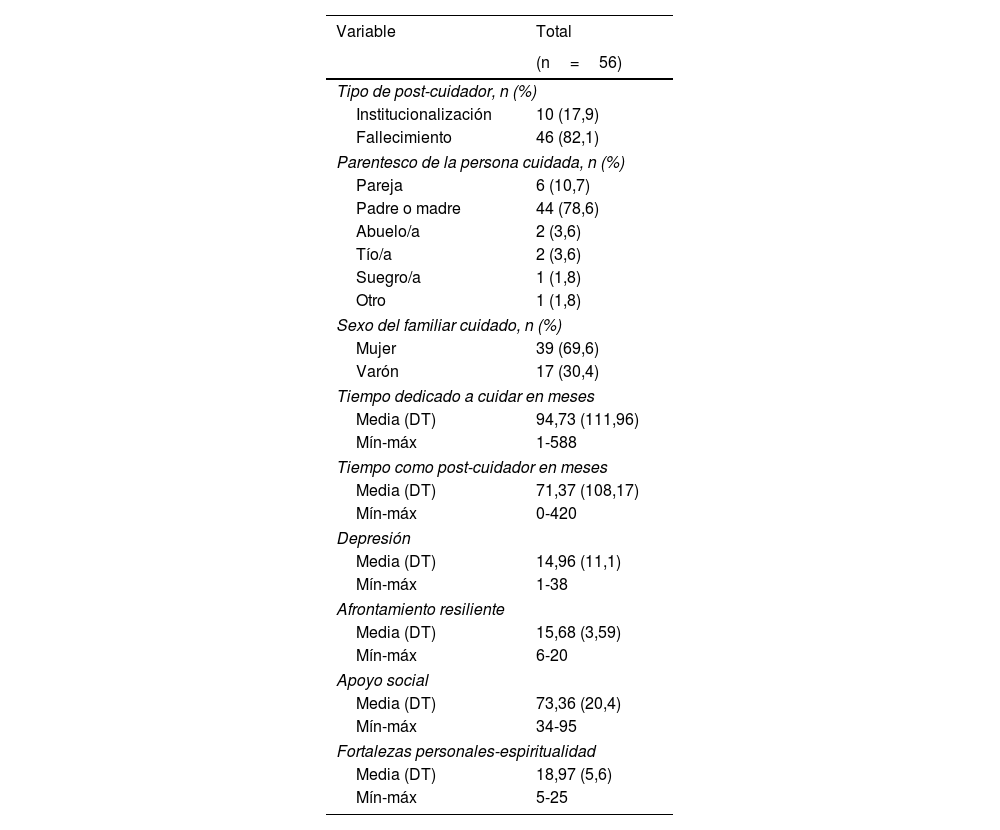El apoyo social parece tener repercusiones positivas en la salud mental y el bienestar de los post-cuidadores familiares. Por ello, el objetivo este trabajo es examinar la red de apoyo social percibida y su papel en el post-cuidado.
Materiales y métodosUn total de 56 post-cuidadores familiares de personas mayores dependientes participaron en una entrevista semiestructurada. Se aplicó el Cuestionario de apoyo social (MOS) y medidas cualitativas. Se realizaron análisis descriptivos, de relación entre variables. A nivel cualitativo se trabajó con un diseño fenomenológico con el programa NVIVO. Finalmente, los datos fueron triangulados utilizando la metodología mixta de diseño de triangulación concurrente (DITRIAC).
ResultadosLa adaptación al post-cuidado se asoció positivamente con las dimensiones de la escala de apoyo social percibido. Se encontró que la red de amigos brinda apoyo durante la pérdida, genera espacios de ocio y esparcimiento que permitieron a los post-cuidadores retomar su vida social. La unidad familiar puede acercarse o alejarse. Los hijos ejercieron un rol de apoyo y compañía para los post-cuidadores y, además, son una fuente de motivación para afrontar la pérdida del familiar cuidado y adaptarse a ella. Los participantes enfatizaron en la necesidad de sentirse escuchados y acogidos. El 64,3% de los participantes refirieron no haber recibido atención psicológica.
ConclusionesLos sistemas de apoyo interno (familia y amigos) son fundamentales en el proceso de transición al post-cuidado. Sería primordial contar con apoyo profesional antes, durante y después de la tarea de cuidar.
Social support appears to have a positive impact on the mental health and well-being of post-caregivers. Therefore, the aim of this paper is to examine the perceived social support network and its role in post-caregiving.
Materials and methods56 family post-caregivers of older people participated in a semi-structured interview. In addition, the Social Support Questionnaire -MOS- and qualitative measures were applied. Descriptive analyses of the relationship between variables were carried out. At the qualitative level, we worked with a phenomenological design using the NVIVO program. Finally, data were triangulated using the mixed concurrent triangulation design methodology (DITRIAC).
ResultsPost-care adjustment was positively associated with the dimensions of the perceived social support scale. The network of friends was found to be supportive during the loss, generating spaces for leisure and recreation that allowed post-caregivers to resume their social life. The family unit can move closer or further away. Children played a role of support and companionship for the post-caregivers and are also a source of motivation to cope and adapt to the loss of the cared-for relative. Participants emph
asised the need to feel listened to and welcomed. 64.3% of participants referred to not having received psychological care.
ConclusionsIt is essential to carry out interventions that favor the development and maintenance of the family caregiver.












